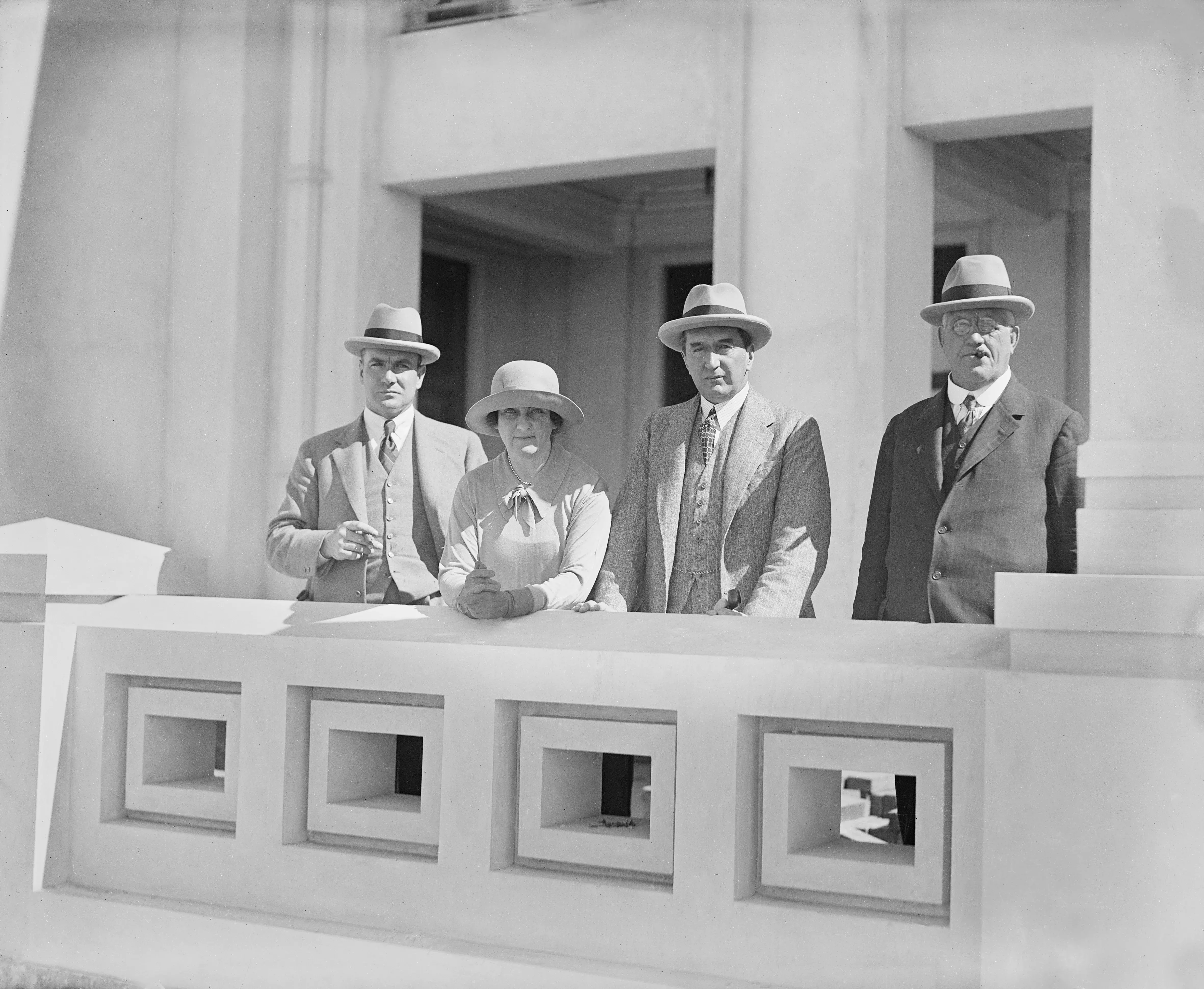STANLEY BRUCE
Member of the Privy Council (1923), Order of the Companion of Honour (1928)
Stanley Melbourne Bruce was the first businessman to become prime minister, and this was reflected in his ‘men, money and markets’ approach to policy. Bruce was a break with the past as the first leader not to have played any role in the Federation movement or to have served in the first Commonwealth Parliament.
15 April 1883
Melbourne, Victoria
25 August 1967
London, England
Ethel Brice
Nationalist
Photo: News Ltd/Newspix
About
Bruce was the son of a successful importer, educated at Melbourne Grammar School and between 1902 and 1905 read arts at Cambridge, after which he studied law and was called to the bar in London in 1907. Bruce worked in the family business and, with the outbreak of the First World War, enlisted in the British Army.

Photo: NAA
He was wounded at Gallipoli and in France and was awarded the Military Cross. Bruce returned to Australia in 1917 and, as a compelling speaker at recruitment rallies, attracted the attention of the Nationalist Party who persuaded him to contest a by-election for the federal seat of Flinders in 1918.
Within three years of winning the seat Bruce was Treasurer in the Hughes Nationalist government. The Hughes government failed to secure a majority at the 1922 election and the Country Party, who held the balance of power, refused to serve in coalition with Hughes, resulting in Bruce becoming prime minister.
Bruce won two elections, losing office in 1929 as public concern increased over rising unemployment and his confrontational approach to industrial reform. Bruce regained his seat of Flinders in 1931, but resigned in 1933 to become Australian High Commissioner to Britain in 1933. By the end of his period in office Bruce had become politically inflexible, but he forged an enduring political pact between non-Labor parties and the Country Party.
MILESTONES
Air Force Act
The Air Force Act is passed on 1 September 1923 establishing the Air Force as a separate defence service from the Navy and Army.
Mount Stromlo Observatory
The first director of the Commonwealth Solar Observatory is appointed on 1 January 1924. It is located in Canberra on Mount Stromlo and carries out solar and atmospheric physics research.
Compulsory voting
Compulsory voting occurs for the first time in the federal election on 14 November 1925, following an amendment to the Commonwealth Electoral Act in 1924.
Federal roads funding
The Federal Aid Roads Act is passed on 16 August 1926 in response to lobbying from the newly formed Australian Automobile Association. The Commonwealth legislation provides funding for national highways and a national traffic code.
First petrol tax
A federal tax on imported petrol is imposed for the first time on 1 December 1926 and is followed by the introduction of a tax on locally refined fuel the following year.
Parliament House opens
Prime Minister Bruce formally opens Parliament House in Canberra on 9 May 1927 in a ceremony attended by the Duke and Duchess of York.
Australian film industry inquiry
A Royal Commission into the Australian film industry is established on 2 June 1927. The commission reports on the state of Australian film making and the increasing role played by American film companies in the distribution process.
Royal Commission on the Constitution
A Royal Commission into the effectiveness of the Australian Constitution to determine industrial relations provisions is established on 18 August 1927.
360° VIEW
Parliament
The Bruce government's legislative program centred on achieving administrative efficiency to increase economic production and growth. The Council of Scientific and Industrial Research Organisation (forerunner of the CSIRO) was created to perform research to benefit agricultural and pastoral industries. Bruce looked to streamline Commonwealth-State relations by activating specific constitutional powers that allowed targeted grants to the states for road building.
In 1927 a Loan Council was formed to provide a means for the Commonwealth to take over states' debts and control future federal and state borrowing. Bruce had made industrial relations reform one of the key issues of the 1925 election and increasingly he believed that without such reform economic prosperity would be impeded.
The Crimes Act was amended in early 1926 to deal with increased industrial disputes and, later that year, Bruce held a referendum to give the Commonwealth greater power to regulate the terms and conditions of industrial employment. Despite the referendum defeat Bruce again highlighted industrial reform in the 1928 election and in 1929 he proposed the Maritime Industries Bill.
The legislation was defeated and a frustrated Bruce called an election and suffered a devastating loss including his own seat of Flinders.

Photo: NAA

